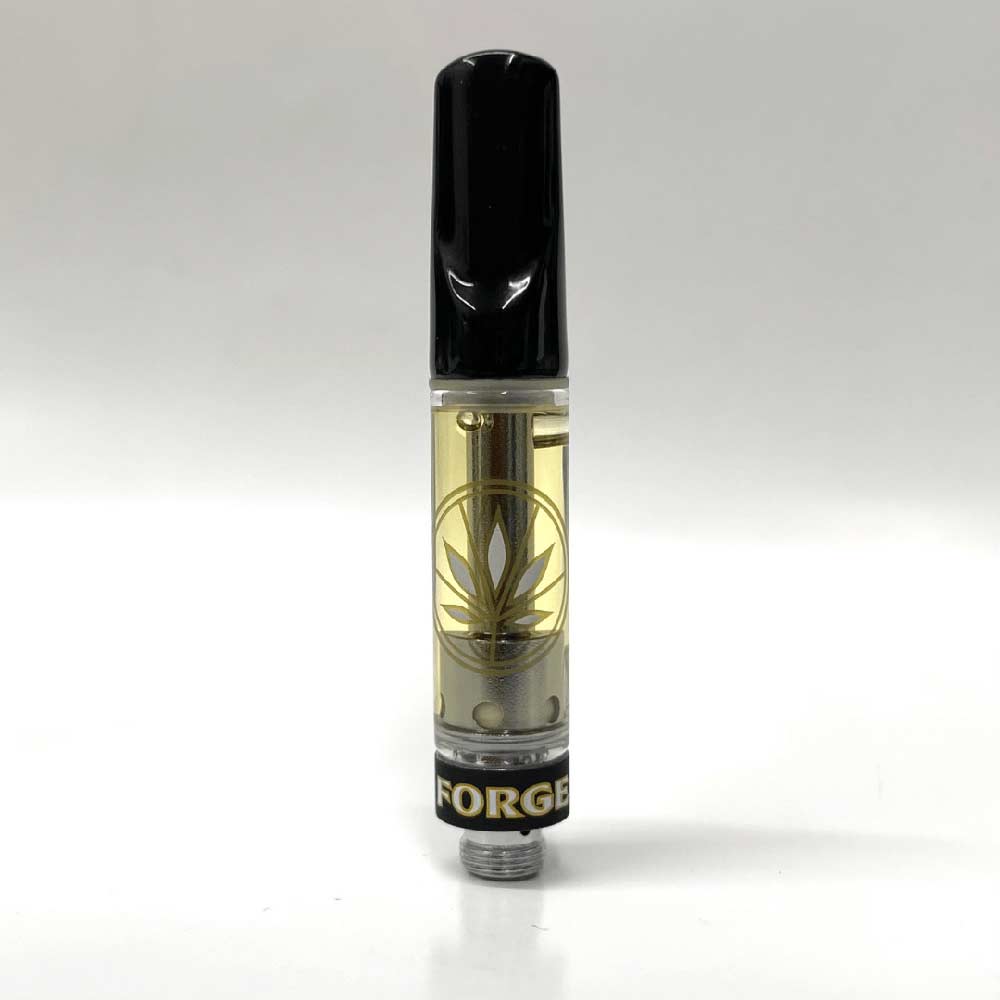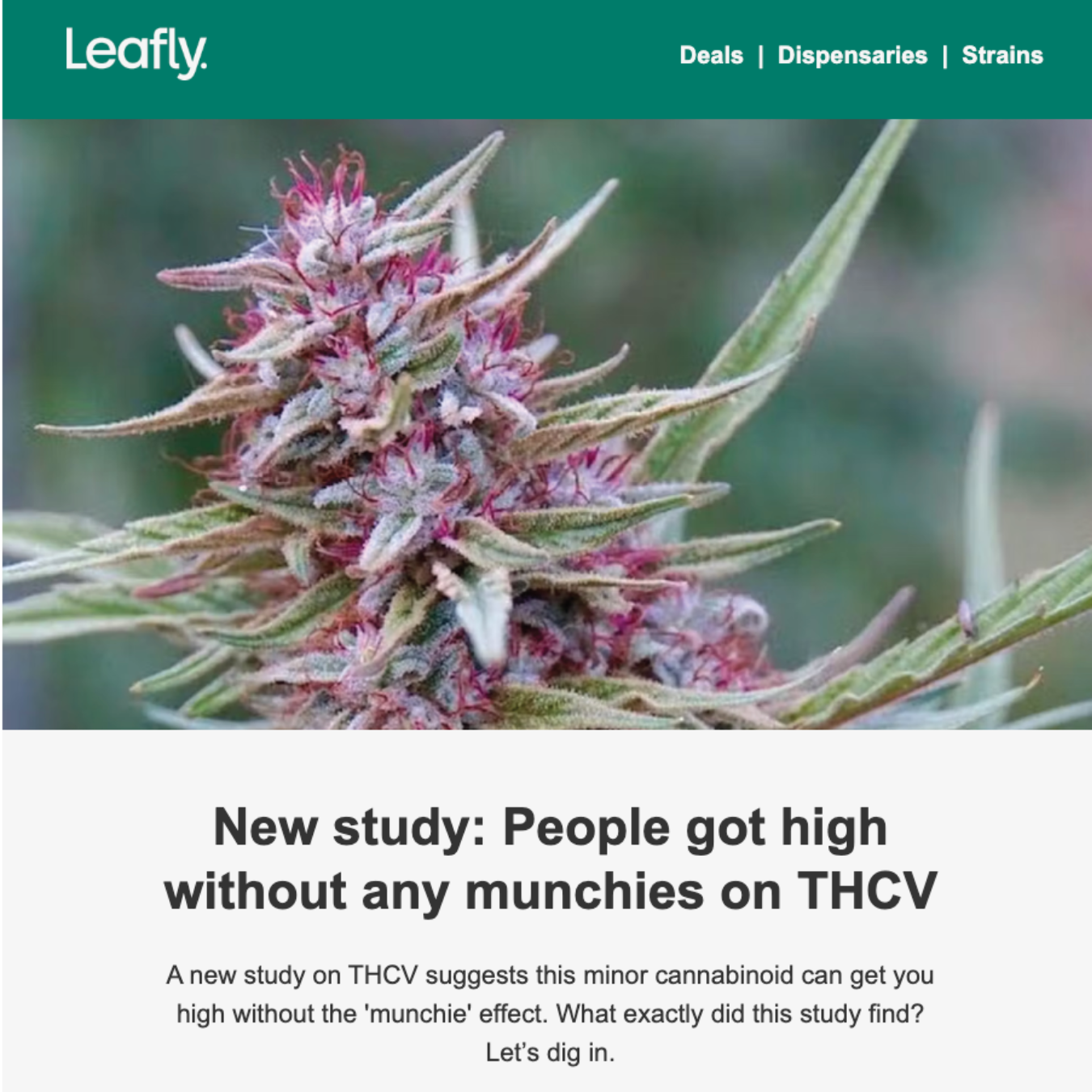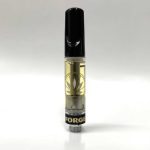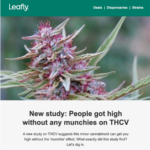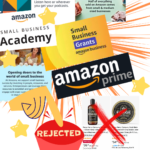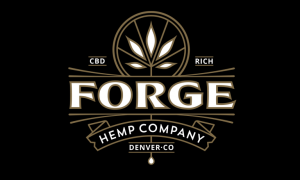HAS BIG PHARMA BEEN THWARTED BY YOUR ENDOCANNABINOID SYSTEM?
Pharmaceutical giant Pfizer announced last week it’s closer to launching a one-pill-daily version of Ozempic, the popular injectable drug for weight loss. Tests last year on a twice-daily pill were ended because the pills “caused nausea, vomiting and gastrointestinal side effects.” Oh, Oh, Oh…dear. But Pfizer isn’t crying over a little spilled bile, they’ll surely figure out an acceptable rate of side effects and get their share of “a market projected to be worth more than $130bn a year.”
What about THCV, aka “Oz-hemp-ic?”
Back in 2020, the National Institutes of Health published a paper on the effectiveness of hemp-derived, non-intoxicating THCV (delta-9 tetrahydrocannabivarin) for weight and blood sugar management, with no notable side effects. At that time, many of us in the industry assumed it was only a matter of time before Big Pharma rushed in to grab THCV. We figured CBN (cannabinol) for sleep would also soon be available with a prescription. But that didn’t happen. Curiously, the reason why THCV and CBN work may also be one of the main reasons why our modern pharmaceutical industry can’t make them profitable.
Pharmacology Sees Nuance as a Nuisance
You may be thinking, effective without those truly horrific side effects, how could Big Pharma not make that profitable?! The issue is, cannabinoids like THCV and CBN (as well as CBD, and THC) require nuance in dosing. “Nuance” isn’t a word we typically associate with Big Pharma. They want to offer consumers a once-a-day magic bullet that’s easy for pharmacists to dispense and easy for users to take. Unfortunately, cannabinoids don’t really work that way.
You may know someone (or be that someone) who has an “insanely high tolerance” for THC or a “one-hit wonder” who is very sensitive to small amounts. The effect of THC is not reliably connected to a person’s body mass or their history using cannabis. You can’t look at a person and know how they’ll respond to cannabinoids. Each person has to evaluate their own tolerance based on measured use over time.
How to get the most from THCV, CBN, and CBD
Responses to cannabinoids such as THC, THCV, CBN and CBD are managed by the body’s Endocannabinoid System (ECS). This short and fascinating clip from a 2021 episode of PBS’s Nova provides a visual explanation of the body’s ECS network and touches on cannabinoid effects on sleep, stress, and PTSD. It’s worth a watch.
To get the most out of THCV, you’ll need to do some experimentation with how much you take, and when you take it. We formulated our THCV tablets at 10mg THCV per piece to provide maximum dosing control. We recommend starting with two tablets first thing in the morning, then taking one or two additional tablets before lunch, and another one or two during the late afternoon when fatigue, boredom, and/or hunger sets in. This daily amount may be too much for you. Or, it may not be enough. There’s only one way to find out.
CBN for sleep is a little different because you’re finding the right single dose to have before bed. For many people, one 10mg CBN tablet is just right. Lately, if I take any CBN, I’ll have two CBN tablets, or one CBN and one CBN+HHC. A friend recently shared with me that when he knows he needs a great night of sleep, he takes 10 (ten!) of our peppermint CBN tablets before bed. I was floored — and concerned, frankly. But then I realized that this guy is in the “insanely high tolerance” THC category. To be clear, don’t take more than one or two CBN tablets if you’re new to CBN. The best way to find your ideal CBN dose is to start with one and keep building every few nights to find that sweet spot.
CBD dosing is also different than THC, THCV, and CBN. Most people need far more CBD than most brands offer in an entire package of CBD edibles or tincture. According to this paper published through the National Institutes of Health, 300mg of CBD should be considered a minimum daily dose for therapeutic effect.
According to the study:
“At doses of 300–400 mg, there is evidence of efficacy with respect to reduced anxiety, as well as anti‐addiction effects in drug‐dependent individuals. More marginal and less consistent therapeutic effects on insomnia, neurological disorders, and chronic pain were also apparent. Larger more robust clinical trials are needed to confirm the therapeutic potential of lower (i.e., <300 mg/day) oral doses of CBD.”
Keep in mind that “therapeutic” effect may be measured differently by researchers than your own perceptions of improvements in anxiety, sleep, pain, and more. Maybe 100mg of CBD daily meets all of your needs. We strongly believe that many Americans would greatly benefit from CBD if they could get an adequate serving of it.
What else is bedeviling Big Pharma?
Dosing may not be the only factor keeping Pfizer and other big players out of the cannabinoid market. The Food & Drug Administration (FDA) has proven that it’s not in a hurry to sponsor new research that would ease restrictions on CBD or hemp-derived compounds. FDA’s most recent statement about why it will not approve CBD for food and supplements cites a patchwork of literature focused on Epidiolex, the only pharmaceutical CBD product approved to treat a type of childhood epilepsy. One study group was given 750-1500mg CBD per day and some people reported GI issues and/or headaches (not surprising). Other FDA concerns were based on animal studies. None of the literature studied adult use of pure, orally-administered CBD in the 300-500mg daily range over time. Hopefully that changes soon.
The other unspoken concern by Big Pharma and FDA is stigma. There are still plenty of folks in and out of government who aren’t interested in the differences between hemp and marijuana, or between THC and CBD. Nixon and Nancy’s influence still echo, all these years later.
The future is bright for hemp, so long as we can hang in there
Attitudes about hemp are changing every year. I believe we’ll eventually get to a place where I don’t get turned down for commercial auto insurance, or a business account with a national bank, or an equipment loan because my company sells hemp products. I know if I had founded Forge Cupcake Company in 2019, we’d have more access to the institutions that make or break small businesses, but I’d probably also have pre-diabetes. Trade offs.
Questions about trying THCV, CBN, or CBD?
If you have any questions about trying any of our products, or you have specific goals in mind, please reach out. You can contact us any time at info@forgehemp.com, or call during business hours (Mountain Time) at 1-877-33-HEMP9. If we can’t take your call immediately, we’ll call you back promptly.
Thanks for reading and have a great week,
Kelly + Team Forge

